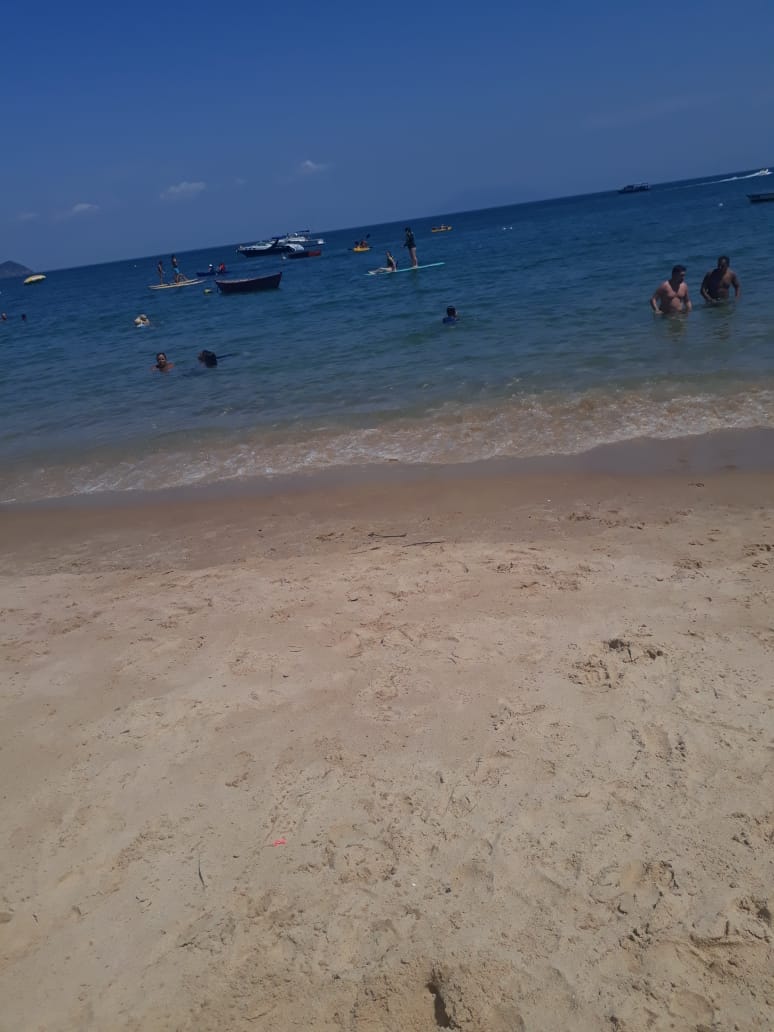Os impactos de festivais versus a participação do residente:
uma análise da Oktoberfest de Santa Cruz do Sul (Rio Grande do Sul, Brasil)
DOI:
https://doi.org/10.29149/mtr.v4i1.5069Palavras-chave:
Impactos, Turismo, Percepção dos residentes, Oktoberfest, Festivais.Resumo
A promoção de festivais tem sido amplamente utilizada por destinos com o objetivo de valorizar a cultura local e ainda ampliar o fluxo de turistas na localidade. Todavia, vale ressaltar que a prática de festivais tende a gerar impactos na comunidade receptora. Desta forma, torna-se fundamental a realização de diferentes estudos buscando avaliar como os residentes percebem os impactos promovidos pelo festival em sua localidade. Nesta perspectiva, o presente resumo tem como objetivo identificar se a frequência de participação na Oktoberfest de Santa Cruz do Sul influencia de maneira estatisticamente significativa na percepção dos residentes sobre os impactos econômicos, sociais, culturais e ambientais promovidos pelo festival no destino. A pesquisa teve uma abordagem quantitativa e sua amostra foi constituída por 520 residentes de Santa Cruz do Sul que frequentam a Oktoberfest ao menos uma vez por edição. Para análise dos resultados foi empregada a técnica de análise de variância do tipo One-Way ANOVA. Os resultados demonstraram que a frequência de participação na Oktoberfest é capaz de influenciar a percepção dos residentes sobre todos os impactos do festival. A população que frequenta a Oktoberfest uma ou duas vezes por ano tende a perceber menos os impactos positivos promovidos pelo festival e mais os ligados aos aspectos negativos, já, os residentes que visitam quatro vezes por ano ou mais demonstraram perceber que a Oktoberfest promove impactos culturais positivos em Santa Cruz do Sul.
Referências
Chen, W. C., Lee, C. F., & Lin, L. Z. (2012). Investigating factors affecting festival quality: A case study of neimen song jiang jhen battle array, Taiwan. African Journal of Marketing Management, 4(2), 43–54.
Chitty, B., Ward, S., & Chua, C. (2007). An application of the ECSI model as a predictor of satisfaction and loyalty for backpacker hostels. Marketing Intelligence & Planning, 25(6), 563-580.
Cole, S. T., & Illum, S. F. (2006). Examining the mediating role of festival visitors’ satisfaction in the relationship between service quality and behavioral intentions. Journal of Vacation Marketing, 12(2), 160-173.
Dagger, T. S., & David, M. E. (2012). Uncovering the real effect of switching costs on the satisfaction-loyalty association: The critical role of involvement and relationship benefits. European Journal of Marketing, 46(3/4), 447-468.
Eskildsen, J., Kristensen, K., JØrn Juhl, H., & Østergaard, P. (2004). The drivers of customer satisfaction and loyalty. The case of Denmark 2000–2002. Total Quality Management & Business Excellence, 15(5-6), 859-868.
Esu, B. B., Arrey, V. M. E., Basil, G., & Eyo, E. E. (2011). Analysis of the economic impacts of cultural festivals: the case of Calabar Carnival in Nigeria. Tourismos, 6(2), 333-352.
Fiuza, T. F. (2016) A percepção dos residentes sobre os impactos gerados por festivais: O caso da Oktoberfest de Santa Cruz do Sul (RS) (Dissertação de Mestrado). Universidade do Vale do Itajaí, Balneário Camboriú, SC, Brasil.
Gil, A. C. Métodos e técnicas de pesquisa social. 6a. ed. São Paulo: Atlas, 2008.
Grappi, S., & Montanari, F. (2011). The role of social identification and hedonism in affecting tourist re-patronizing behaviours: The case of an Italian festival. Tourism management, 32(5), 1128-1140.
Han, J. S., & Hyun, K. S. (2009). The effect of family restaurants customer value on satisfaction and behavior intention: focused on university student in Seoul. Korean Journal of Hospitality Administration, 18(1), 135-150.
Hensley, R. L., & Sulek, J. (2007). Customer satisfaction with waits in multi-stage services. Managing Service Quality: An International Journal, 17(2), 152-173.
Jamaludin, M., Johari, S., Aziz, A., Kayat, K., & Yusof, A. (2012). Examining structural relationship between destination image, tourist satisfaction and destination loyalty. International Journal of Independent Research and Studies, 1(3), 89-96, July.
Li, X., & Wan, Y. K. P. (2017). Residents’ support for festivals: Integration of emotional solidarity. Journal of Sustainable Tourism, 25(4), 517-535.
Lee, T. H., & Chang, P. S. (2017). Examining the relationships among festivalscape, experiences, and identity: evidence from two Taiwanese aboriginal festivals. Leisure Studies, 36(4), 453-467.
Lee, Y. K., Lee, C. K., Lee, S. K., & Babin, B. J. (2008). Festivalscapes and patrons' emotions, satisfaction, and loyalty. Journal of business research, 61(1), 56-64.
Lohmann, P. B., Zouain, D. M., Virkki, K. B., de Quintela, M. D., & Pacheco, T. (2014) Impactos da copa do mundo FIFA 2014 no turismo das cidades - sede: Uma percepção dos residentes da cidade do Rio de Janeiro no período pré-evento. Tourism and Hospitality International Journal, 4(3), 320-337.
Mahadevan, R. (2017). Going beyond the economic impact of a regional folk festival for tourism: A case study of Australia’s woodford festival. Tourism Economics, 23(4), 744-755
Mair, J. & Whitford, M. (2013) An exploration of events research: event topics, themes and emerging trends. International Journal of Event and Festival Management, 4(1), 6-30.
Marujo, N. (2014) Turismo e eventos culturais: A festa do fim-de-ano na ilha da Madeira e as experiências dos turistas. Investigaciones Turísticas, 7, 71-86.
Marzuki, A. (2012) Local residents’ perceptions towards economic impacts of tourism development in Phuket. Tourism: An International Interdisciplinary Journal, 60(2), 199-212.
Mason, M. C., & Paggiaro, A. (2012). Investigating the role of festivalscape in culinary tourism: The case of food and wine events. Tourism management, 33(6), 1329-1336.
Mcdowall, S.; Choi, Y. A. (2010) comparative analysis of Thailand residents' perception of tourism's impacts. Journal of Quality Assurance in Hospitality & Tourism, 11(1), 36-55.
Moyano, C. A. M., Lengler, J. F. B., Angnes, D. L., & Sampaio, F. V. (2015). Estratégia para fidelização do cliente em turismo: o caso de uma Oktoberfest no Brasil. Turismo:Visão e Ação, 17(2), 387-413
Oktoberfest Santa Cruz (2017) Público pagante da 33ª Oktoberfest totaliza 137,6 mil pessoas. Recuperado em 04 out. 2018, de http://oktoberfestsantacruz.com.br/index.php/2017/10/24/publico-pagante-da-33a-oktoberfest-totaliza-1376-mil-pessoas/.
Pavluković, V., Armenski, T., & Alcántara-Pilar, J. M. (2017). Social impacts of music festivals: Does culture impact locals' attitude toward events in Serbia and Hungary? Tourism Management, 63, 42-53.
Pranic, L., Petric, L., & Cetinic, L. (2012). Host population perceptions of the social impacts of sport tourism events in transition countries: Evidence from Croatia. International Journal of Event and Festival Management, 3, 236-256.
Prayag, G., Hosany, S., Nunkoo, R., & Alders, T. (2013). London residents' support for the 2012 Olympic Games: The mediating effect of overall attitude. Tourism Management, 36, 629-640.
Ribeiro, A. H. P., Hanna, A. K. D. F. A., & Monteiro, P. R. R. (2006). O valor gerado na experiência de consumo e lealdade: a operacionalização dos construtos e suas relações. ENCONTRO NACIONAL DOS PROGRAMAS DE PÓSGRADUAÇÃO EM ADMINISTAÇÃO, 30, 1-16.
Rychalski, A., & Hudson, S. (2017). Asymmetric effects of customer emotions on satisfaction and loyalty in a utilitarian service context. Journal of Business Research, 71, 84-91.
Tanford, S., & Jung, S. (2017). Festival attributes and perceptions: A meta-analysis of relationships with satisfaction and loyalty. Tourism Management, 61, 209-220
Tanford, S., & Jung, S. (2017). Festival attributes and perceptions: A meta-analysis of relationships with satisfaction and loyalty. Tourism Management, 61, 209-220.
Tontini, G., Branco, L. L., Brandt, L. M. O., Ronchi, L., de Oliveira, P. R. V., & Zanchett, R. (2018). Nonlinear antecedents of visitors’ satisfaction with the oktoberfest in Brazil. Total Quality Management & Business Excellence, 1-25.
Trott, S. (2007). Uma replicação da escala de Gursoy, Kim e Uysal para mensurar os impactos de eventos especiais (Dissertação de Mestrado). Universidade Federal do Rio Grande do Sul, RS, Porto Alegre.
Woosnam, K. M., & Aleshinloye, K. D. (2018) Residents’ emotional solidarity with tourists: Explaining perceived impacts of a cultural heritage festival. Journal of Hospitality & Tourism Research, 42(4), 587-605.
Xu, S., Barbieri, C., Anderson, D., Leung, Y. F., & Rozier-Rich, S. (2016). Residents' perceptions of wine tourism development. Tourism Management, 55, 276-286.
Yolal, M., Gursoy, D., Uysal, M., Kim, H. L., & Karacaoğlu, S. (2016). Impacts of festivals and events on residents’ well-being. Annals of Tourism Research, 61, 1-18.
Yürük, P., Akyol, A., & Şimşek, G. G. (2017). Analyzing the effects of social impacts of events on satisfaction and loyalty. Tourism Management, 60, 367-378.
Downloads
Publicado
Como Citar
Edição
Seção
Licença
Autores que publicam nesta revista concordam com os seguintes termos:
- Autores mantém os direitos autorais e concedem à revista, sem ônus para a mesma, o direito de primeira publicação, com o trabalho simultaneamente licenciado sob a Licença Creative Commons Attribution que permite o compartilhamento do trabalho com reconhecimento da autoria e publicação inicial nesta revista
- Autores têm autorização para assumir contratos adicionais separadamente, para distribuição não-exclusiva da versão do trabalho publicada nesta revista (ex.: publicar em repositório institucional ou como capítulo de livro), com reconhecimento de autoria e publicação inicial nesta revista.
- Autores assumem exclusiva responsabilidade pelas suas opiniões emitidas nos trabalhos publicados nesta revista
















